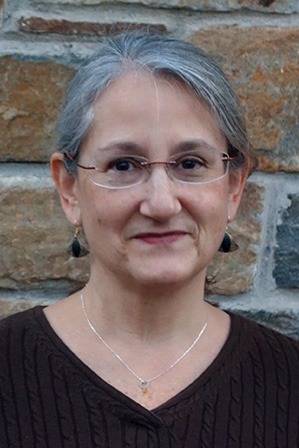Combating Climate Change on the Ground
Letter from the Editor
BY SHAWN DORMAN

As I write just before we go to press in mid-September, it’s difficult to turn attention away from the Afghanistan situation, from the nearly 130,000 who were evacuated from Kabul and our colleagues who managed that evacuation and continue to work 24/7 through the task force and embassies in the region to bring more people out. We cannot turn away from those who remain in Afghanistan.
In his column, AFSA President Eric Rubin looks at the end of the 20-year war and ponders what lies ahead.
Our cover story marks the 10-year anniversary of the State Department’s Bureau of Conflict and Stabilization Operations. While debates rage on about how and whether the U.S. should engage in conflict prevention and stabilization efforts, CSO Acting Assistant Secretary Robert Faucher and CSO staffer John Mongan lay out the evolution of this small bureau and offer insights and recommendations for the way ahead.
This month’s focus on climate change diplomacy was planned ages ago. Climate change remains one of the planet’s biggest crises and perhaps the greatest challenge of our time. We explore what role U.S. diplomats and development professionals can play in combating climate change and mitigating its impact. This is an ongoing story, and in a future edition we hope to pass along positive news from Glasgow COP 26, which begins Oct. 31.
Our focus here is primarily on incorporating engagement at the local level and the need for the U.S. to lead by example on climate change. FSO Holly Kirking Loomis, who led the U.S. climate delegation to COP 25 in 2019, brings climate leadership messaging and action home to the United States in “To Lead Abroad, We Must Deliver at Home.” It’s a great case study in the practice of subnational diplomacy.
Professor Theresa Sabonis-Helf picks up on that theme in her look at “The Paris Accord: An Experiment in Polylateralism.” The way that the 2015 agreement creates new roles for nonstate actors may be a significant element in its success.
In “Tackling the Climate Crisis from the Inside,” Stephanie Christel Meredith from State’s Greening Diplomacy Initiative in the Office of Management Strategy and Solutions shows how embassies are serving as “strategic platforms to demonstrate climate solutions and leadership overseas.”
Also from GDI, Mary Tran introduces State’s air quality monitoring program, DOSAir, launched in 2015 as a partnership with the EPA. Data from equipment at dozens of posts is available to the FS community and the public through the app ZephAir, facilitating bilateral engagement on many levels.
In “Building a Foundation for Successful Green Diplomacy,” FSO Ken Meyer presents a case study in successful environmental stewardship from Tri-Mission Italy. And in “Climate Change: It’s Personal,” USAID FSO Kovia Gratzon-Erskine shows how climate change realities affect individuals and communities, and offers ideas for coping. Last, a selection from the FSJ Archive dates back to the 1970s—“the decade of the environment.”
The Speaking Out, “Knowledge Management @ State,” comes from the inaugural cohort of the Secretary’s Leadership Seminar at Harvard Business School Executive Education Program: Yomaris Macdonald, Lourdes Cue, Timothy Haynes, Jennifer Smith and Benjamin Tietz. Preserving institutional knowledge when employees transfer or leave is a perpetual problem. They advocate for a cultural shift from “need to know” to “responsibility to share.”
In the Feature, “Flying with Fido,” FS family member Melissa Mathews writes about the turmoil caused by the so-called dog ban that began this past summer.
In FS Heritage, FSO Jay Raman tells the story of “The Man Who Crossed the Seas: Charles Lindbergh’s Goodwill Tour, 1927-1928.” And the Reflection by FSO (ret.) Dane Smith Jr. recalls crossing paths with Sadiq al-Mahdi in Sudan in the 1980s and again two decades later.
This month the Foreign Service mourns the loss of a giant of the Service. FSO Joel Ehrendreich contributes an Appreciation honoring “An Indomitable Spirit: Johnny Young, 1940-2021.”
Outgoing Associate Editor Cameron Woodworth offers a parting shot from Cocora Valley, Colombia (Local Lens). We will miss him, and wish him and his wife, USAID attorney Monica Smith, a wonderful new cycling life in Spain. We welcome Julia Wohlers as the new associate editor.
As always, write to us at journal@afsa.org.

